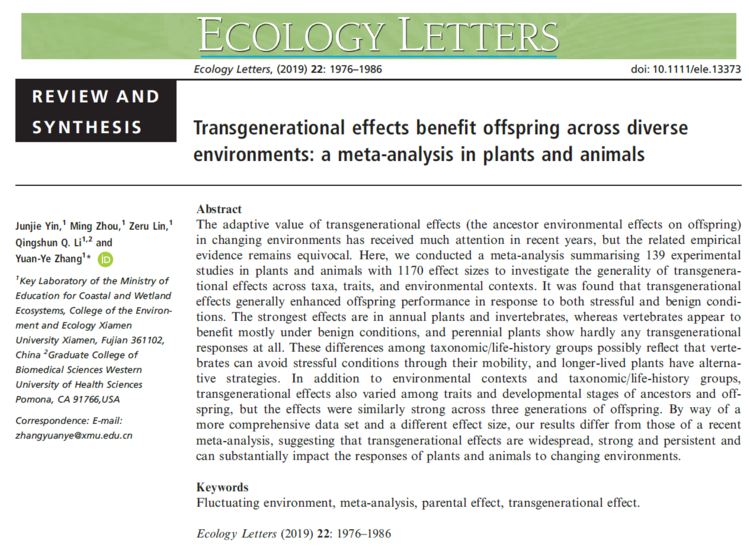Transgenerational effects benefit offspring across diverse environments: a meta‐analysis in plants and animals
Junjie Yin, Ming Zhou, Zeru Lin, Qingshun Q. Li, Yuan-Ye Zhang
Ecology Letters DOI: https://doi.org/10.1111/ele.13373
Published: August 21, 2019
Abstract
The adaptive value of transgenerational effects (the ancestor environmental effects on offspring) in changing environments has received much attention in recent years, but the related empirical evidence remains equivocal. Here, we conducted a meta‐analysis summarising 139 experimental studies in plants and animals with 1170 effect sizes to investigate the generality of transgenerational effects across taxa, traits, and environmental contexts. It was found that transgenerational effects generally enhanced offspring performance in response to both stressful and benign conditions. The strongest effects are in annual plants and invertebrates, whereas vertebrates appear to benefit mostly under benign conditions, and perennial plants show hardly any transgenerational responses at all. These differences among taxonomic/life‐history groups possibly reflect that vertebrates can avoid stressful conditions through their mobility, and longer‐lived plants have alternative strategies. In addition to environmental contexts and taxonomic/life‐history groups, transgenerational effects also varied among traits and developmental stages of ancestors and offspring, but the effects were similarly strong across three generations of offspring. By way of a more comprehensive data set and a different effect size, our results differ from those of a recent meta‐analysis, suggesting that transgenerational effects are widespread, strong and persistent and can substantially impact the responses of plants and animals to changing environments.
